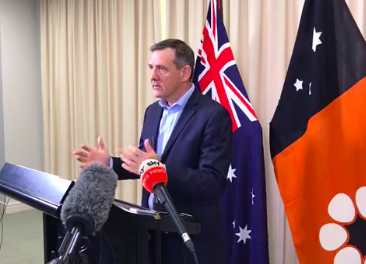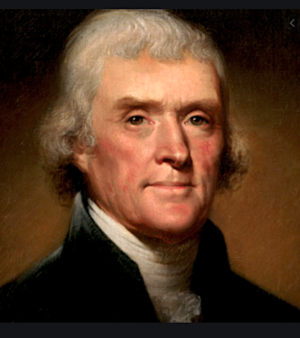Not much left of Gunner’s lofty promises
23 June 2020
Archived article
 Transparency is the foundation stone of a democracy because it allows to fight corruption, keeps public servants honest, stops information from which privileged groups may profit and promotes social trust and therefore, development, wrote DON FULLER. Yet too often these principles have been absent in the NT since self-government, with the Gunner Government turning on their head lofty promises made early in its term. Yet an accountable and transparent government is needed for economic and community development, argues Professor Fuller in this Part Two of his series.
Transparency is the foundation stone of a democracy because it allows to fight corruption, keeps public servants honest, stops information from which privileged groups may profit and promotes social trust and therefore, development, wrote DON FULLER. Yet too often these principles have been absent in the NT since self-government, with the Gunner Government turning on their head lofty promises made early in its term. Yet an accountable and transparent government is needed for economic and community development, argues Professor Fuller in this Part Two of his series.
Mr Gunner in presidential pose.
Nobel laureate Douglas North’s historical analysis of the transition from less developed countries to open societies shows how economic and political development are far more sustainable in jurisdictions that have open and transparent governments.
Is it likely then, that a limiting factor to ongoing Territory economic and community development can be traced to increased problems with government accountability and transparency?
Numerous studies show the negative impact of corruption on growth and investment. For example, a study by Aidt et al. of 70 countries indicated that countries with higher quality institutions experience higher growth and lower corruption.
Countries moving to high quality institutions had an economic and employment growth premium in both the short and long run.
In a presentation to Chartered Secretaries, the Western Australian Ombudsman stated that appropriate standards of government accountability and transparency were essential for creating the most prosperous, productive economies that allow individuals, businesses and governments to create the highest possible standard of living for the highest possible number of people.
If the Gunner Government has been found to be wanting in these key areas it is likely that the standards of living of Territorians have been compromised and prevented from reaching their full potential.
In a recent 2019 Prosperity Index, the Legatum Institute assessed 167 countries, representing over 90% of the world’s population, examining whether a country possesses “an honest and effective Government that preserves order and encourages productive citizenship” and whether it features a “transparent and accountable governing institutions that promotes economic growth”.
Australia finished twelfth behind Canada and the United Kingdom and well behind New Zealand in fifth place. One can only surmise where the Territory would have ended up on such a scale!
Countries at the top of the prosperity index enjoy high levels of economic and personal freedom, respect for the rule of law and high levels of accountable and transparent governance.
The Legatum Institute countries in which sound governance creates satisfied citizens are also the most likely to have the healthiest economic fundamentals and the most entrepreneurial societies.
An apparent lack of this appreciation has been one of the main ongoing criticisms of the Gunner Government.
A director of the World Bank has stated it is “the citizens’ right [and] also their duty, to demand adequate government accountability and transparency”.
Marlies Glasius, in the journal of International Affairs, says authoritarian practices encourage domination by politicians, encouraging substantive and procedural rule-breaking, interfering with community preferences and inhibiting the civic virtues of those to whom accountability is owed. Information flows are strictly controlled.
[ED – The Alice Springs News has frequently pointed out the manipulation of media by ministerial minders, by refusing to give adequate information or making it difficult to obtain. We have pointed out that ministers avoid direct contact with journalists except in rigidly stage-managed circumstances.]
Firms are much less likely to invest in a region where it is not clear on what basis government makes important financial decisions.
Firms are also concerned where resources are seen to be wasted by a government not following proper budgetary and democratic principles.
The Gunner Government took power in the Northern Territory after the August 2016 election.
Following wide community concerns regarding questions of accountability, transparency and budget decision making under the Giles Government, there was substantial community support for a document tabled in the NT Parliament in November 2016 by the incoming Government titled “Restoring Integrity to Government – Trust and Integrity Reform Discussion Paper”.
It starts with the statement: “Territorians want and deserve a government they can trust. An open, accountable and transparent government is essential for this trust to exist.”
And: “Territorians have the right to access government information – it belongs to all of us.
“Open, transparent and accountable government is also the best way to maximise the health and prosperity of the whole community … a future Territory Labor Government will be guided by the principle of restoring integrity to government through leadership at the highest level of government through actions, not just words.”
Such statements, as the Gunner Government comes to the end of its term now, appear to many to be perplexing, at best, begging the question as to whether, and when, this actually occurred during the Gunner Government.
 Inability by a government to meet the objectives that it has set itself in key areas such as integrity, accountability and transparency, serves to further damage an already very fragile Northern Territory system of governance.
Inability by a government to meet the objectives that it has set itself in key areas such as integrity, accountability and transparency, serves to further damage an already very fragile Northern Territory system of governance.
In May 2017, previous Labor MLA and University Law Lecturer Ken Parish (pictured) wrote: “The Gunner Government’s end of semester report card gives it a fairly miserable failing D grade in the subject accountability and transparency.”
Gunner promised to restore the trust of Territorians in government, after it had been shattered by four years of chaos, division and dubious ethical behaviour by various members of the Giles CLP regime.
After nine months in office, how is Labor going, Mr Parish asked.
“In my assessment the record is none too impressive.”
Some limited progress was made, he argued, to publish the registrable interests of MLAs who potentially could have a conflict of interest in decision making. However, changes were regarded as limited due to the time allowed before publishing such interests.
However, during this period the Gunner Government moved in parliament to impose an unannounced policy of restricting the maximum floor area for takeaway liquor outlets to 400 square metres.
This effectively prevented the opening of a Dan Murphy liquor store in Darwin.
The decision, as pointed out by Parish, was included in Parliamentary legislation. This prevented the circumstances surrounding the decision to be made available for public consideration.
This in turn, resulted in a loss of trust in government decision making with suspicions that political donations from interests associated with the Australian Hotels Association had influenced the decision.
The Gunner Government promised to set up a Territory Independent Commission against Corruption (NT ICAC), funded with $3m in the 2017-18 Budget. However, it did not commence taking reports until end November 2018.
Parish points out that for around half of the term of the Gunner Government neither the Ombudsman nor Commissioner for Public Interest Disclosures had the power to investigate allegations against politicians or their staffers.
It was also doubtful whether the NT Independent Commission Against Corruption (ICAC) would be given the powers to investigate several dubious actions occurring before the Gunner government came to power.
 Ironically, the ICAC has just delivered to Parliament an investigative report about a politician very close to Mr Gunner, Speaker Kezia Purick, accused of corrupt conduct. The report is due to be made public today.
Ironically, the ICAC has just delivered to Parliament an investigative report about a politician very close to Mr Gunner, Speaker Kezia Purick, accused of corrupt conduct. The report is due to be made public today.
This does little to build trust and confidence in government decision making free of corruption and malfeasance in the Territory.
In the 2016 NT election, the Labor party finished with 18 seats and the CLP opposition with two. The balance of five seats was made up of Independents.
While the preferential voting system used in the Territory is largely responsible for such lopsided results, this clearly required a parliamentary Leader aware of ethical and democratic responsibilities in the face of a very weak Opposition.
It was therefore a very important challenge for the new Leader in a situation where the integrity of the democratic political system in the NT was to be sorely tested.
An ethical and responsible Leader was beholden to uphold the main principles of a democratic state rather than to attempt to bully a weak Opposition into submission or irrelevance, based on an overwhelming number of seats in Government.
In fact in this election the CLP gained around 32% of the popular vote compared with 42% for the ALP.
If a proportional representation voting system had been used, as it is in the smaller jurisdictions of Tasmania and the ACT, the CLP would have had a substantial Opposition of around eight members to the ALP’s 11.
It was clear that a relatively high proportion of the population in the Territory had not voted for a Gunner Labor government. A wise, careful Leader needed to take this into account.
 At this time in particular, the Territory required a Leader of Government who understood and valued the key principle that the essence of democracy requires that minority rights are also protected.
At this time in particular, the Territory required a Leader of Government who understood and valued the key principle that the essence of democracy requires that minority rights are also protected.
This keystone principle was expressed by Thomas Jefferson (pictured, biography.com), the third President of the United States in 1801, in his first Inaugural Address: “All . . . will bear in mind this sacred principle, that though the will of the majority is in all cases to prevail, that will to be rightful must be reasonable; that the minority possess their equal rights, which equal law must protect and to violate would be oppression.”
It is profoundly unfortunate for the governance of the Territory that the elected minority has had insufficient resources to pursue their task and prevent the sense of such “oppression”.
It therefore appeared to some to be a calculated attack on the integrity of the democratic system in the Territory when, as pointed out by Ken Parish, the Chief Minister’s Government decided not to provide any extra staffing or resources (other than two parliamentary library staff shared between all of them) to the five Independent MLAs in the Legislative Assembly.
Such assistance is vital to allow the MLAs to subject the Government to effective scrutiny and oversight, a fundamental purpose of Parliament in a Westminster system.
Weakening the capacity of the Legislative Assembly as an effective opposition struck at the heart of the need for accountability and transparency in a democratic system.
NEXT: According to Ken Parish the Gunner Government not only reduced parliamentary oversight and scrutiny by allocating insufficient resources to MLAs, it also significantly watered down very good recommendations by the Select Committee for Opening Parliament to the People. The most serious was a decision by the Gunner Government to halve the available time for parliamentary scrutiny of the Government’s Budget by the Estimates Committee from 60 hours to just 30.



Time for the Feds to run NT and clear Gunner debt.
If Mr Gunner can get away with giving the Darwin Turf Club $12m of taxpayer dollars in his seat most dubiously and without challenge then we know something stinks.
Transparency? Maybe the Feds may take over if we cannot get this coming Parliament right.
Most NT politicians are far too self serving and self interested! We can’t continue with a Gunner Government!
NT politicians – carpetbaggers!!
Can’t believe the so called politicians can get away with this. Sadly, I agree, it’s time for the Federal Government to take over.